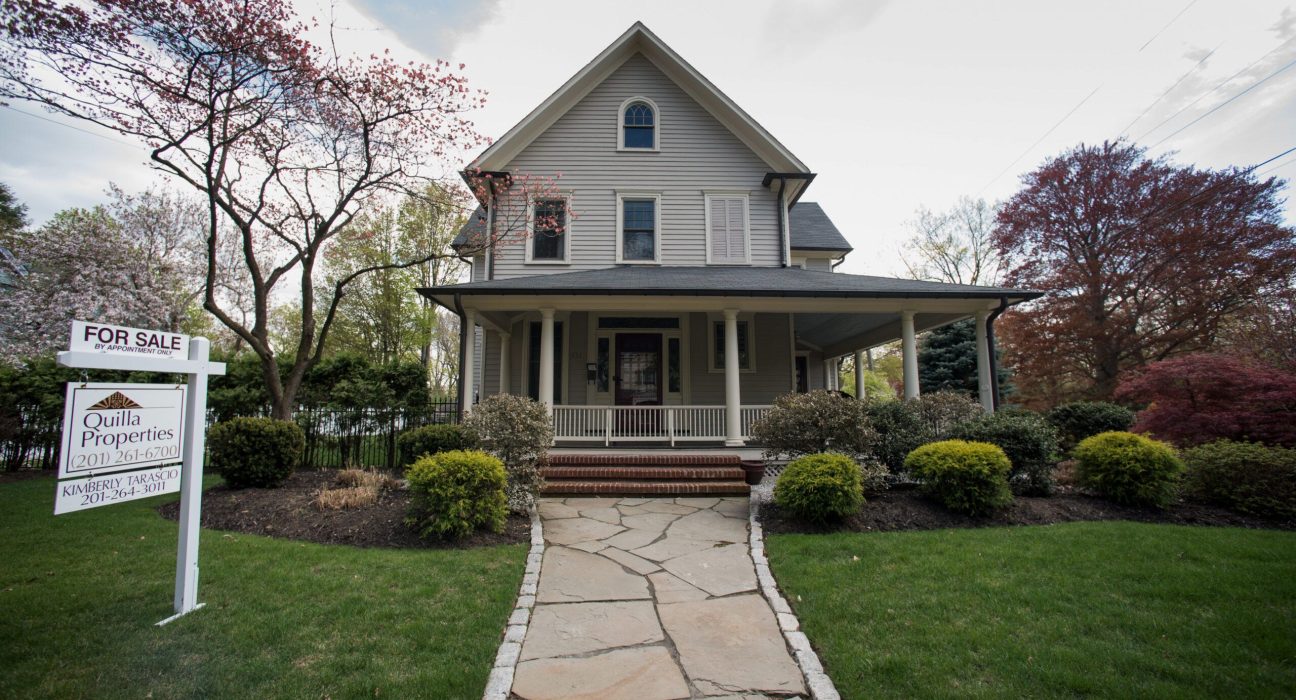A few major mortgage rates saw an increase over the last seven days. The average interest rates for both 15-year fixed and 30-year fixed mortgage rates drifted higher. We also saw a hike in the average rate of 5/1 adjustable-rate mortgages.
- 30-year fixed mortgage: 7.16%
- 15-year fixed mortgage: 6.59%
- 5/1 adjustable-rate mortgage: 6.13%
High mortgage rates, expensive home prices and tight inventory kept homebuying out of reach for many last year. The current housing market won’t recover overnight, but the good news is that mortgage rates are projected to move lower in the coming months.
“Housing market activity has been so depressed that it wouldn’t take much for 2024 to be better than 2023,” says Matt Graham of Mortgage News Daily. “Whether that means a ‘return to balance’ really depends on how we define balance.”
Mortgage rates change every day. Experts recommend shopping around to make sure you’re getting the lowest rate. By entering your information below, you can get a custom quote from one of CNET’s partner lenders.
About these rates: Like CNET, Bankrate is owned by Red Ventures. This tool features partner rates from lenders that you can use when comparing multiple mortgage rates.
Today’s mortgage rates
If you’re in the market for a home, check out how today’s mortgage rates compare to last week’s. We use data collected by Bankrate to track changes in these daily rates. This table summarizes the average rates offered by lenders nationwide:
Today’s mortgage interest rates
| Loan term | Today’s Rate | Last week | Change |
|---|---|---|---|
| 30-year mortgage rate | 7.16% | 6.91% | +0.25 |
| 15-year fixed rate | 6.59% | 6.32% | +0.27 |
| 30-year jumbo mortgage rate | 7.23% | 6.95% | +0.28 |
| 30-year mortgage refinance rate | 7.21% | 7.03% | +0.18 |
Rates as of Feb. 9, 2024
What to expect from mortgage rates in 2024
High inflation and the Federal Reserve’s aggressive interest rate hikes drove up mortgage rates over the last several years. With inflation now decelerating, the Fed is positioning itself to make its first interest rate cut, though that may still be several months away.
While mortgage forecasters base their projections on different data, most experts and market watchers predict rates will move toward 6% or lower by the end of 2024. Here’s a look at where some major housing authorities expect average mortgage rates to land.
What factors affect mortgage rates?
While it’s important to monitor mortgage rates if you’re shopping for a home, remember that no one has a crystal ball. It’s impossible to time the mortgage market, and rates will always have some level of volatility because so many factors are at play.
“Mortgage rates tend to follow long-date Treasury yields, a function of current inflation and economic growth as well as expectations about future economic conditions,” says Orphe Divounguy, senior macroeconomist at Zillow Home Loans.
Here are the factors that influence the average rates on home loans.
- Federal Reserve monetary policy: The nation’s central bank doesn’t set interest rates, but when it adjusts the federal funds rate, mortgages tend to go in the same direction.
- Inflation: Mortgage rates tend to increase during high inflation. Lenders usually set higher interest rates on loans to compensate for the loss of purchasing power.
- The bond market: Mortgage lenders often use long-term bond yields, like the 10-Year Treasury, as a benchmark to set interest rates on home loans. When yields rise, mortgage rates typically increase.
- Geopolitical events: World events, such as elections, pandemics or economic crises, can also affect home loan rates, particularly when global financial markets face uncertainty.
- Other economic factors: The bond market, employment data, investor confidence and housing market trends, such as supply and demand, can also affect the direction of mortgage rates.
This graph shows the fluctuation of mortgage rates from the start of the pandemic to the end of last year:
How to choose a mortgage
When picking a mortgage, consider the loan term, or payment schedule. The most common mortgage terms are 15 and 30 years, although 10-, 20- and 40-year mortgages also exist. You’ll also need to choose between a fixed-rate mortgage, where the interest rate is set for the duration of the loan, and an adjustable-rate mortgage. With an adjustable-rate mortgage, the interest rate is only fixed for a certain amount of time (commonly five, seven or 10 years), after which the rate adjusts annually based on the market’s current interest rate. Fixed-rate mortgages offer more stability and are a better option if you plan to live in a home in the long term, but adjustable-rate mortgages may offer lower interest rates upfront.
30-year fixed-rate mortgages
The average interest rate for a standard 30-year fixed mortgage is 7.16%, which is a growth of 25 basis points compared to one week ago. (A basis point is equivalent to 0.01%.) A 30-year fixed mortgage is the most common loan term. It will often have a higher interest rate than a 15-year mortgage, but you’ll have a lower monthly payment.
15-year fixed-rate mortgages
The average rate for a 15-year, fixed mortgage is 6.59%, which is an increase of 27 basis points from the same time last week. Though you’ll have a bigger monthly payment than a 30-year fixed mortgage, a 15-year loan usually comes with a lower interest rate, allowing you to pay less interest in the long run and pay off your mortgage sooner.
5/1 adjustable-rate mortgages
A 5/1 ARM has an average rate of 6.13%, an uptick of 2 basis points compared to last week. You’ll typically get a lower introductory interest rate with a 5/1 ARM in the first five years of the mortgage. But you could pay more after that period, depending on how the rate adjusts annually. If you plan to sell or refinance your house within five years, an ARM could be a good option.
Calculate your monthly mortgage payment
Getting a mortgage should always depend on your financial situation and long-term goals. The most important thing is to make a budget and try to stay within your means. CNET’s mortgage calculator below can help homebuyers prepare for monthly mortgage payments.
Expert tips for the best mortgage rates
Though mortgage rates and home prices are high, the housing market won’t be unaffordable forever. It’s always a good time to save for a down payment and improve your credit score to help you secure a competitive mortgage rate when the time is right.
- Save for a bigger down payment: Though a 20% down payment isn’t required, a larger upfront payment means taking out a smaller mortgage, which will help you save in interest.
- Boost your credit score: You can qualify for a conventional mortgage with a 620 credit score, but a higher score of at least 740 will get you better rates.
- Pay off debt: Experts recommend a debt-to-income ratio of 36% or less to help you qualify for the best rates. Not carrying other debt will put you in a better position to handle your monthly payments.
- Research loans and assistance: Government-sponsored loans have more flexible borrowing requirements than conventional loans. Some government-sponsored or private programs can also help with your down payment and closing costs.
- Shop around for lenders: Researching and comparing multiple loan offers from different lenders can help you secure the lowest mortgage rate for your situation.







